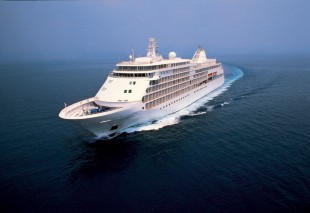

World Cup fans housed at sea for Qatar 2022

Qatar is planning to use cruise ships to accommodate visitors during the World Cup tournament in 2022, Arabian Business has learnt.
Qatar is planning to have in place around 240 properties before the start of the World Cup in 2022, according to FIFA’s official report on the evaluation of the Qatari bid.
The report stated that Qatar currently has 100 existing hotels, villages and compounds spread across the seven host cities. An additional 140 properties will be sourced or constructed to meet accommodation needs, “including a cruise ship project in Al Wakrah with 6,000 rooms,” the report added.
“Cruise ships are good solutions... it makes sense,” said Jalil Mekouar, regional director and head of real estate advisory at Jones Lang LaSalle Hotels.
“Qatar will face similar issues as other countries have been facing, in terms of what do you do with all the inventory once the event is over… This challenge will be amplified for Qatar as we are talking about a city state, pretty much, and we talking of a small place physically, which is not as large as South Africa,” he added.
The report stated that two thirds of the new supply of inventory, which will amount to around an extra 55,000 rooms, will be covered by 17 construction projects, 13 of which will be completed by 2016.
As part of its bid, Qatar said it plans to double the number of hotel rooms to nearly 90,000 in time for the tournament, which will result in an investment of around $17bn over the next five years.
While the report stated Qatar currently attracts around one million visitors a year and aims to grow visitor numbers by 20 percent in the next five years, the country is already suffering from an oversupply in its hotel sector.
“The World Cup announcement has come at a crucial time in the growth of the hotel sector in Doha, which many privately feared was heading for oversupply and a rate war, as is being experienced now in Dubai’s Al Barsha district, for example,” said Guy Wilkinson, general manager at Viability, a Dubai-based hospitality consultancy company.
With the oversupply issue already in place, Mekouar said “talk to double [the inventory] is just going to emphasis the problem rather than solve it.”
However, Wilkinson was confident that growth in the tourism sector in Qatar could sustain the growth in supply.
“Qatar has already witnessed the importance of a major global sporting event to its hotel sector, when it hosted the 15th Asian Games in 2006. Not only were the hotels booked out during the two weeks of the games themselves, but they received significant and increasing demand for at least two or three years before that,” he added.
Using cruise ships as a short-term answer is one that was also used in South Africa during the last World Cup, when ships anchored off Port Elizabeth, Durban and Cape Town helped supply up to 4,500 extra rooms as temporary accommodation.
While cruise ships are one answer to the temporary demand for accommodation, Mekouar said the oversupply issue in general “is certainly something to be looked at and I am interested to see what the response of the Qataris is.”